I was on offline for a few weeks last summer when Edna O’Brien died. At the time, I probably wouldn’t have been able to find the words to capture what she meant to me and so many others. How she represented the interior lives of Irish women in her fiction, in her writing about subjects (intimacy, sex, religion) that could get a writer banned in Ireland. What she meant to every woman who wanted to write - in an overwhelming male Irish literary world - to see someone as visible, political and experimental as Edna.
Last night I finally saw The Blue Road, a documentary about her life. We know the Ireland that Edna was writing into and against, and seeing the stagnant, outraged history of it again on screen, is a reminder of how fearless she was. The mandated canon elevated male voices, and hagiographies championed what men wrote about. I will never forget the impact of reading The Country Girls trilogy as a teenager and realising there was a whole world that was not represented in any of the Irish writing I had read to date. I, and so many women who wanted to write, did not see ourselves represented in the culture until Edna.
What the film captures so well, is how attuned O’Brien was to the fact that there were many people - not just women - who needed to hear what she had to say. Her son Carlo spoke of her work ethic (“a book a year”), and her dedication to her art, in spite of a jealous (writer) husband, who withheld money and wrote sneering addendums to her diaries, beautifully voiced by Jessie Buckley.
This was also an era when writers were treated as public intellectuals and were regular guests on political panels and TV chat shows. In several clips, Edna - languorous, glamorous, articulate - is well able for the cast of male interviewers who veer between flirtation and chastisement. In this clip, she tells a clearly enamoured Michael Parkinson about her practice and what it’s like to be on the receiving end of professional jealousy from men (including her husband).
“When I am writing. My actual work, I think, is a bit of a threat to men. I think men are frightened of certain professions, but particularly of writers… and I have had to pay that price in my life.” Anne Enright sums this up on screen: “Sometimes I think misogyny is just jealousy with a dick”.
Two interviews in the film shot near the end of her life are very affecting, including her talking about Holy Island, the place where she is now buried. A mystical, ancient place, that aligns with what she says in same Parkinson interview as Ireland’s “addiction to the supernatural”. What permeates the film is her steadfastness and indefatigable intelligence. Her final novel, Girl, was published as she approached her 89th birthday.
In 2015, I was asked to chair an in-conversation event with Edna. I’ve moderated hundreds of events but this was the most nervous I’ve ever been. Backstage she was charming, inquisitive, chatty. She apologised for not being in a position to give me a new short story for The Long Gaze Back: An Anthology of Irish Women Writers. She explained that she was deep into writing The Little Red Chairs when I first contacted her, and was sorry not have had time to write a story from scratch.
A couple of years later, when working on The Art of the Glimpse: 100 Irish Short Stories, I got in touch with her again, asking I could include her story, ‘A Journey’. She was amenable but wondered if it would be possible for her to have an another look at the story before she agreed. Out of curiosity, I asked why, and she replied: “In case it’s bad… it was written a long time ago.”
‘A Journey’, for the record, is very, very good. It originally appeared in the collection, A Scandalous Woman, published in 1974, and features, without doubt, the greatest author photo of all time:
When it came time for the event, I hardly had to ask any questions. She spoke - as she wrote - in perfect paragraphs. Erudite, funny, and one of few writers I ever interviewed to get a standing ovation. You can listen to the interview via the DLR Library soundcloud page here:
Director Sinéad O’Shea has captured Edna - her work, her life, the history and misogyny of 20th century Ireland (the archive footage of Ireland is incredible, and painstakingly edited) - brilliantly. The film will make you furious and grateful (there are also laughs, but moments too, where you may cry).
Please go and see in the cinema - here’s where it’s showing and below is the trailer. It will be released in the UK on April 18th.
Edna said many wise things in her life, both on and off the page, but I always come back to this:
“Well, fuck the plot! That is for precocious schoolboys.”



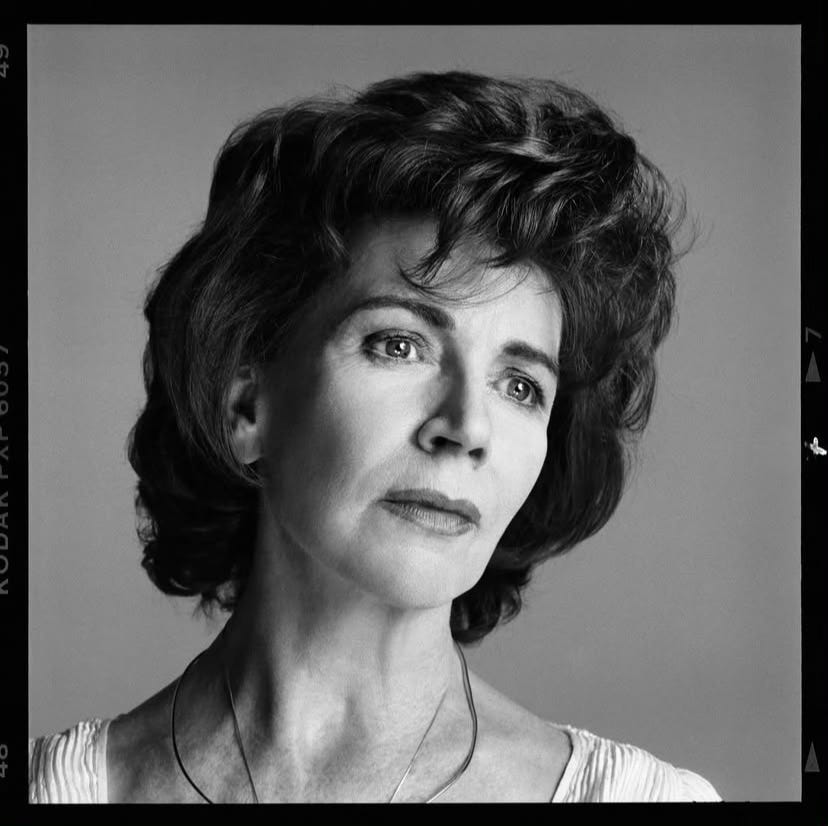

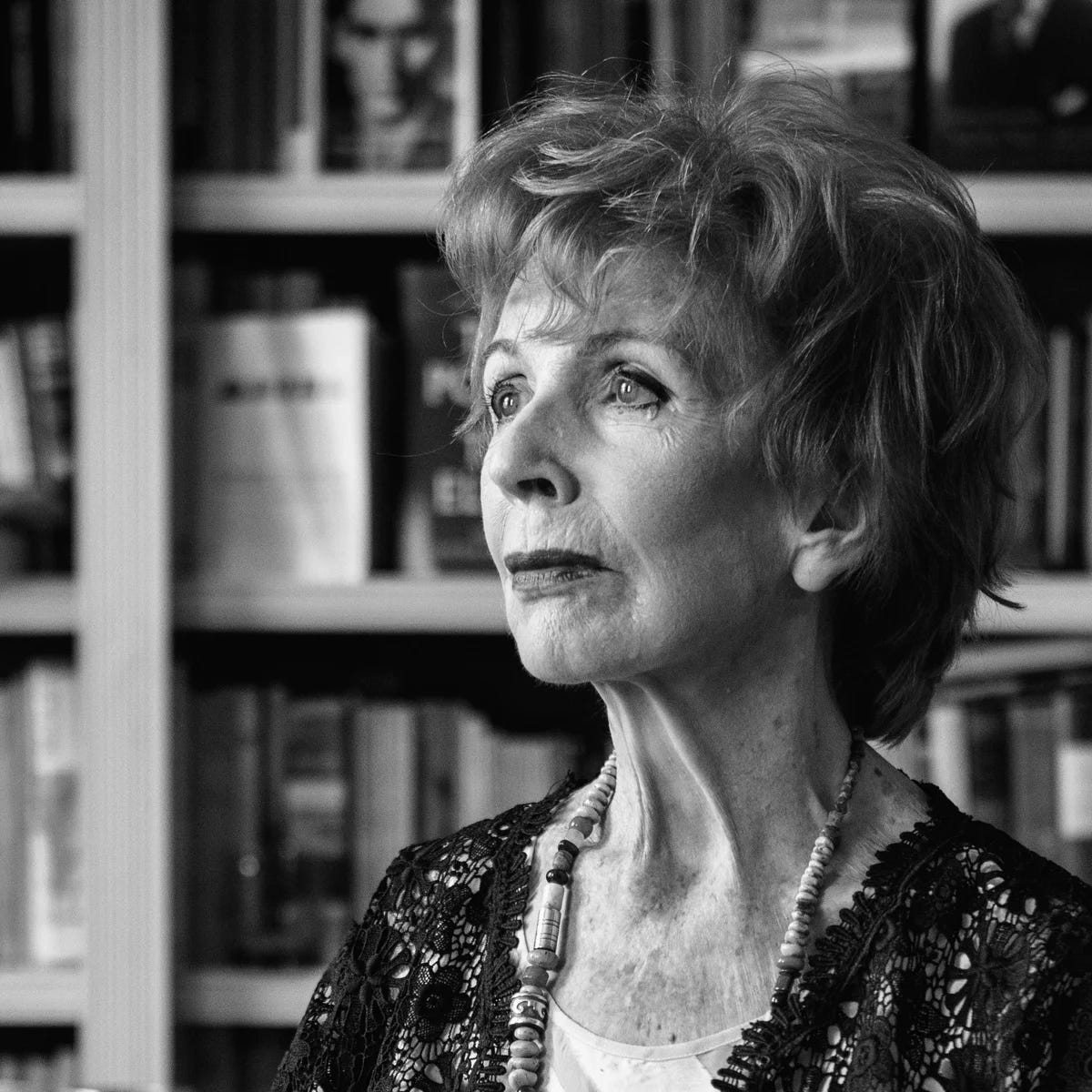
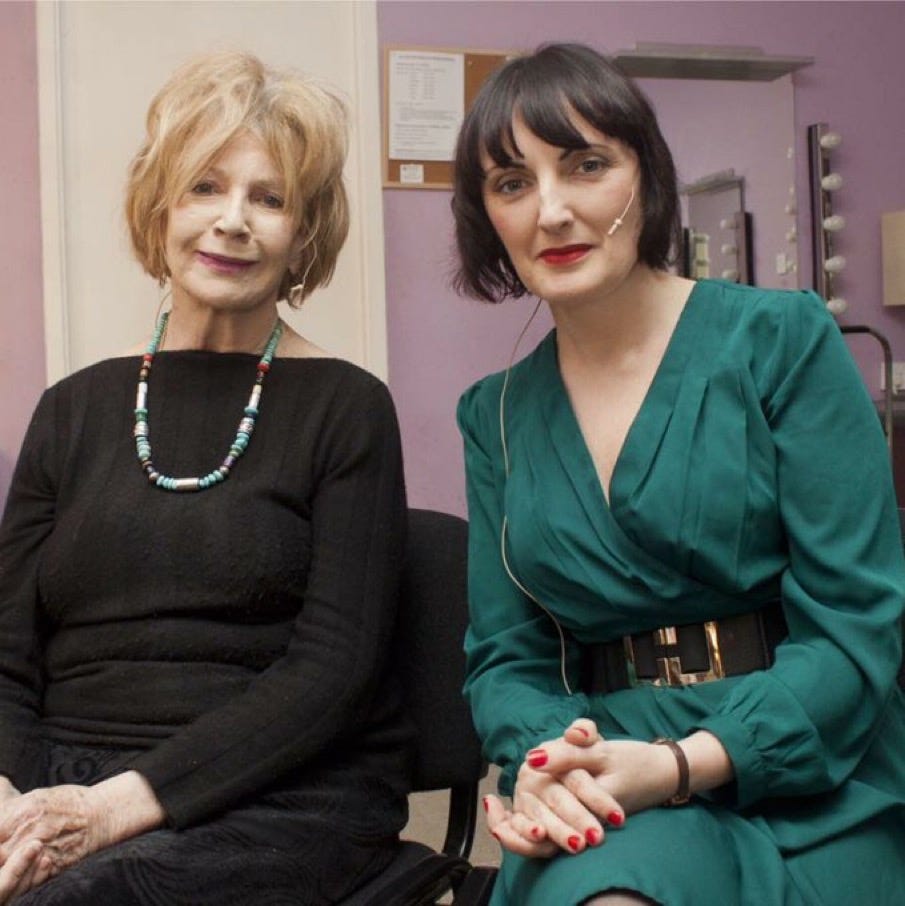
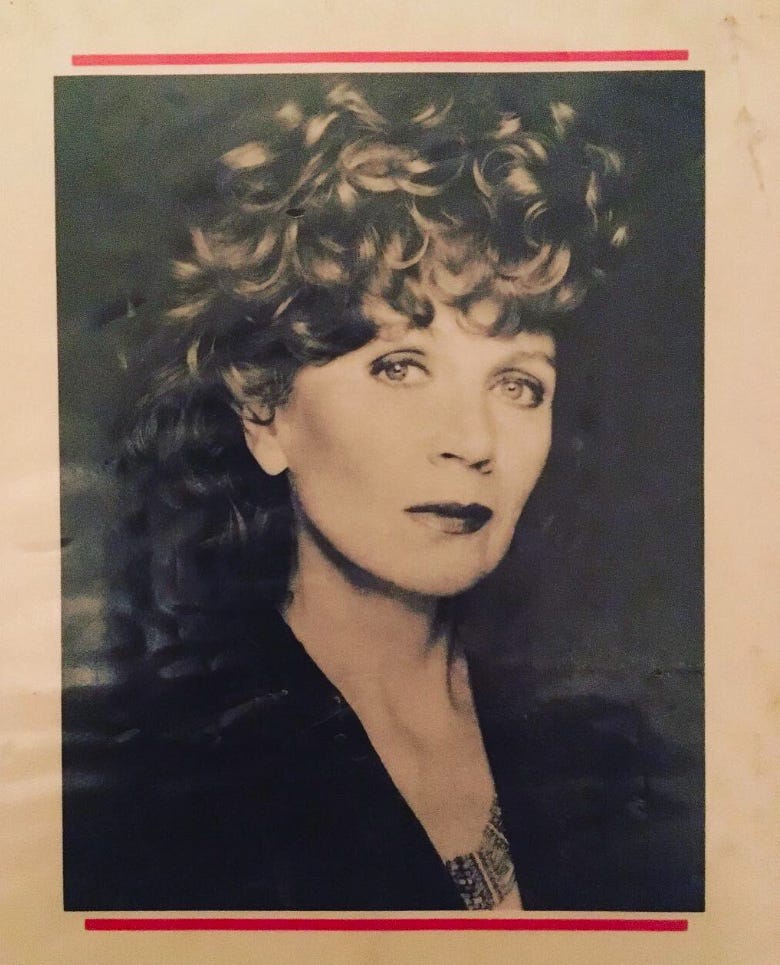
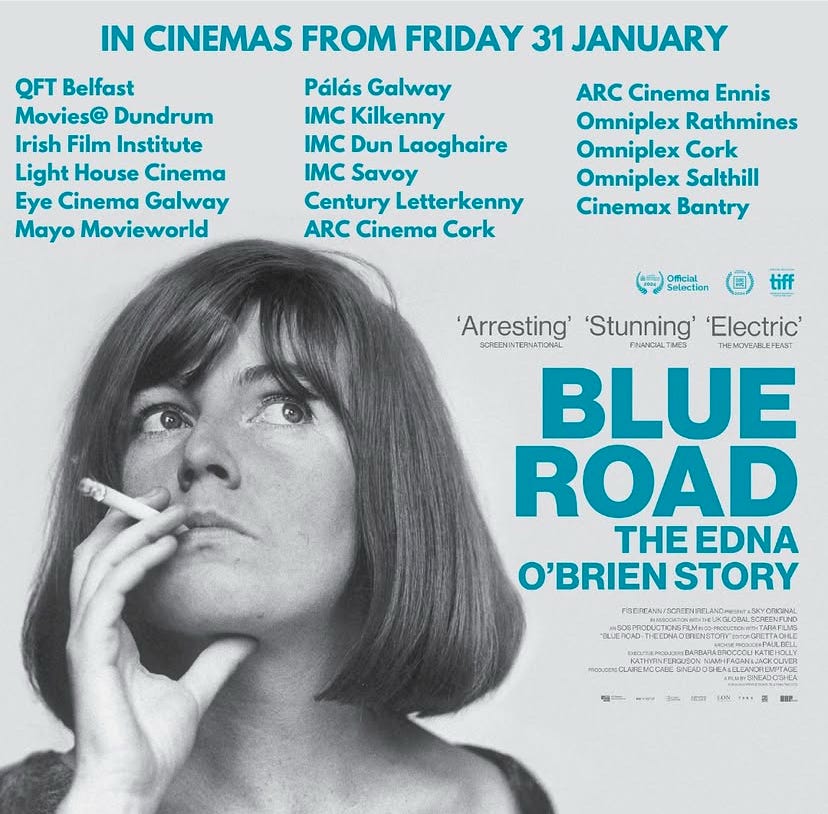
It is a fantastic piece of work, not only as a profile, but a great commentary on society and culture over the years. I laughed out loud at Anne Enright’s line you cite.
I was at your conversation with Edna, which was such a moment of recognition – if I can borrow that phrase! For me, it was a moment to hear her speak about her work and to “catch up” with the rest of you in recognising her impact. For Edna, it seemed like it was a moment to recognise how admired and loved she was. And, yes, it was a very unique (and emotional) experience. I’m looking forward to seeing the film. Great piece Sinead!